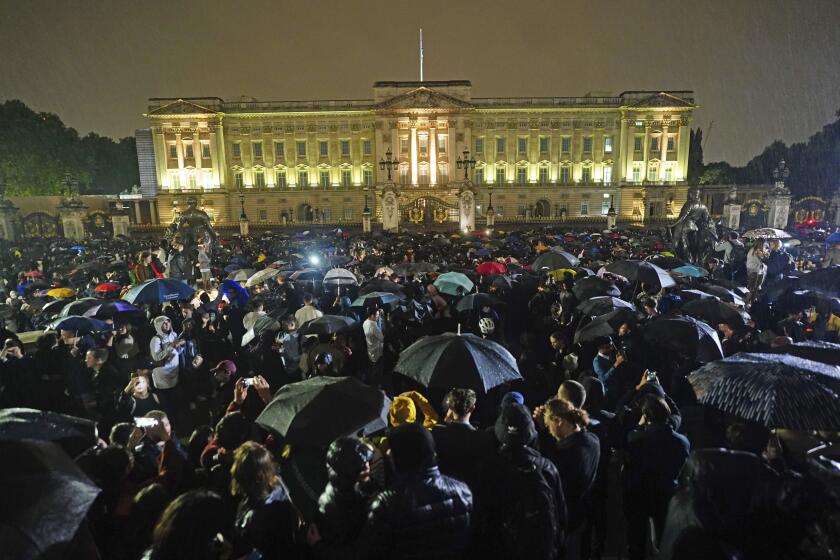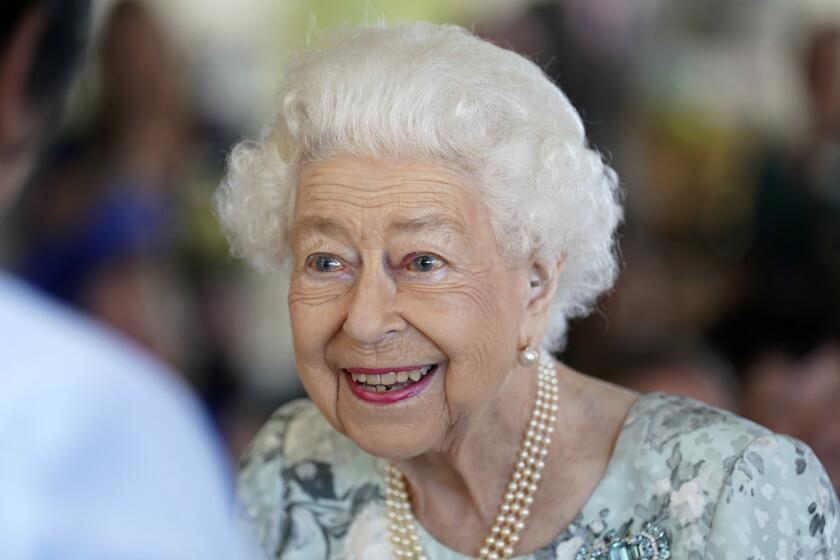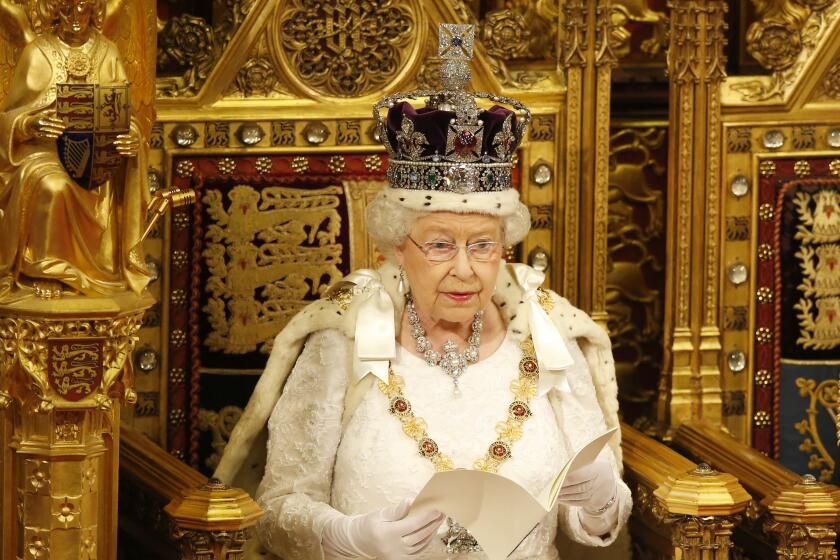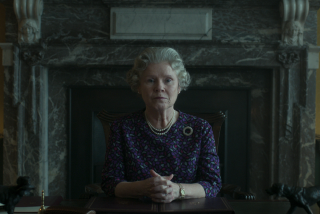Global leaders pay tribute to Queen Elizabeth II as world mourns her death
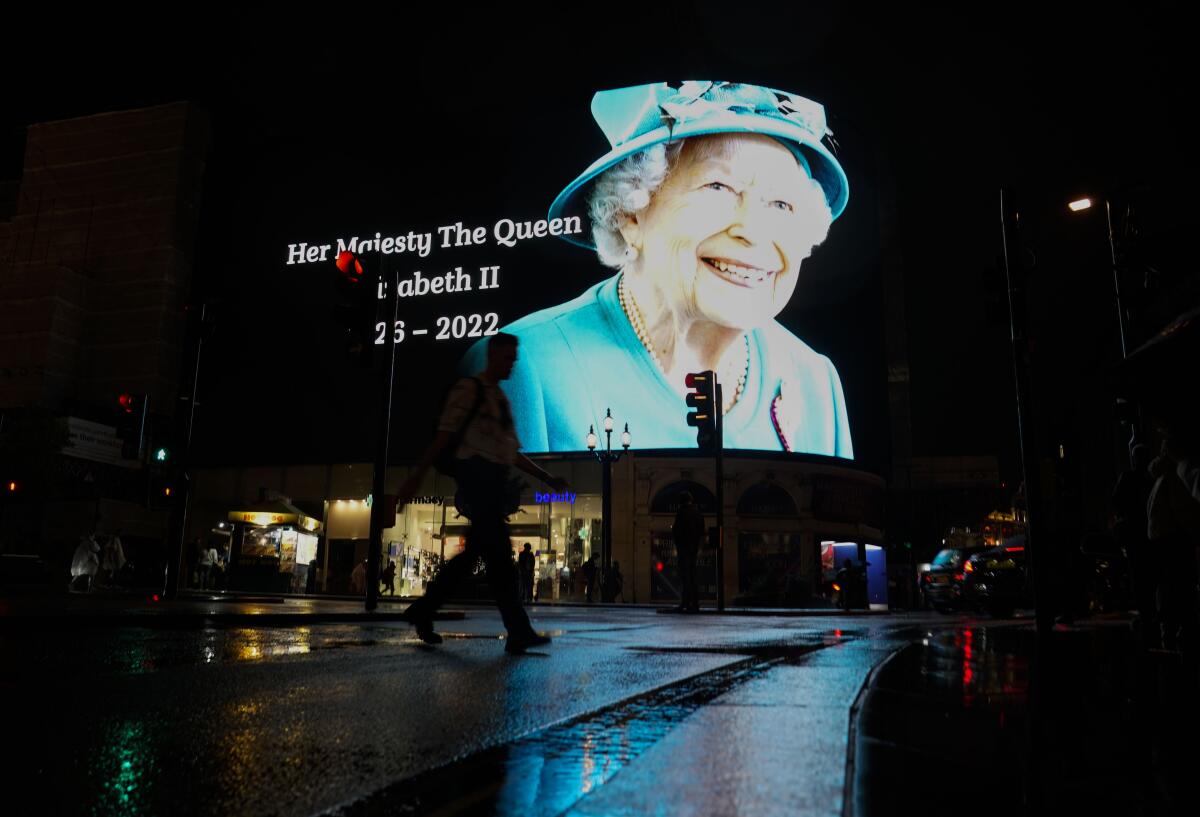
- Share via
WASHINGTON — A world that for the most part knew no other British monarch expressed deep sadness Thursday at the death of Queen Elizabeth II, and awe for the expanse of her reign and the historical transformation she guided.
Leaders, many of whom were not born when Elizabeth assumed the throne, mourned the loss for Britain and wondered what the new era will hold for a nation mired in rocky politics and unrest, above which the queen often stood as a calming, unifying force.
And citizens from former parts of the once-vast British Empire, including some who oppose the monarchy, paid homage to the queen.
In Washington, President Biden canceled a scheduled speech and praised Elizabeth as a “stateswoman of unmatched dignity” and “unwavering commitment to duty.”
“Her Majesty Queen Elizabeth II was more than a monarch,” Biden said in a statement. “She defined an era.
Britons from all walks of life converged on the ornate gates of Buckingham Palace in central London.
“She was the first British monarch to whom people all around the world could feel a personal and immediate connection,” he added, whether they heard her as a young princess speaking on the radio to children during World War II, gathered around their TV sets for her coronation or watched her Platinum Jubilee on their smartphones.
Biden ordered flags at the White House and government buildings to be flown at half-staff until the queen’s funeral. He later made an unannounced stop at the British Embassy to sign a condolences book.
A tearful Justin Trudeau, the prime minister of Canada, choked up as he said that it was with deep sadness that he saluted her “wisdom, compassion and warmth.”
The new British prime minister, Liz Truss, on her third day on the job, stepped to a podium at 10 Downing St. and solemnly lionized the queen as the “rock upon which modern Britain was built.”
The government of Australia, where anti-monarchy sentiment runs high, said the people of Britain “will feel they have lost part of what makes their nation whole.”
“This is a loss we all feel, for few have known a world without Queen Elizabeth II,” the statement said. “In her seven remarkable decades on the throne, Her Majesty was a rare and reassuring constant amidst rapid change. Through the noise and tumult of the years, she embodied and exhibited a timeless decency and an enduring calm.”
Queen Elizabeth II’s 70-year reign was so long that most of Britain’s 68 million people have known no other sovereign.
Biden’s remarks were followed by statements from former U.S. presidents, a sign of the “special relationship” and uniquely close alliance that Washington has with London nearly 250 years after the colonies rebelled against Britain. Former President Clinton thanked Elizabeth “for all she did to deepen the Special Relationship.”
“In sunshine or storm, she was a source of stability, serenity and strength,” Clinton said in a statement.
Former President George W. Bush fondly recalled having tea “with Her Majesty and her Corgis” and echoed gratitude for her steady hand during crisis and tumult.
And from a fortified bunker in his war-ravaged country, Ukrainian President Volodymyr Zelensky tweeted that the queen’s death marked “irreparable loss.”
Pope Francis paid “tribute to her life of unstinting service to the good of the nation and the Commonwealth.” He also said prayers for King Charles, invoking “an abundance of divine blessings” to guide him in his new role.
Taiwan’s Ministry of Foreign Affairs said Friday that Minister Joseph Wu called John Dennis, the British representative in Taipei, to express his condolences. “The death of Queen Elizabeth II is not only a loss for the British government and people, but also the loss of a model leader for the international community,” the ministry said.
In parts of the world that once formed the British Empire, and where the ghosts of exploitation and often brutal colonialism haunt people’s memories, there were condolences for Elizabeth while not necessarily for the monarchy.
Indian Prime Minister Narendra Modi remembered her as a “stalwart of our times.”
“She personified dignity and decency in public life,” he said on Twitter.
Modi recalled a meeting with the queen when she showed him a handkerchief that Gandhi had given her on her wedding.
“I will always cherish that gesture,” he said.
Singapore’s prime minister, Lee Hsien Loong, wrote on Facebook that he was “deeply saddened” by the queen’s death and that the monarch “left a significant mark” on the former British colony.
United Nations Secretary-General António Guterres referred to the long period of decolonization in Asia and Africa and cited Elizabeth’s role then as “a reassuring presence throughout decades of sweeping change.” Guterres noted that the British monarch visited the U.N. headquarters in New York on two occasions, 50 years apart.
Even Sinn Fein, an Irish nationalist political party that historically fought the British government, expressed sorrow and credited Elizabeth as a peacemaker.
“I am grateful for Queen Elizabeth’s significant contribution and determined efforts to advancing peace and reconciliation,” said a Sinn Fein leader, Michelle O’Neill.
More to Read
Sign up for Essential California
The most important California stories and recommendations in your inbox every morning.
You may occasionally receive promotional content from the Los Angeles Times.
